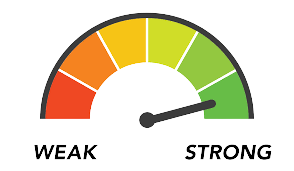Overview of CERT-GH
The Ghana National Computer Emergency Response Team (CERT-GH) was formed by the Ministry of Communications in August 2014 in response to a rising need to curb the cybersecurity menace. To protect the e-government project and Industrial and Control Systems (ICS) infrastructure being deployed as well as secure other critical information infrastructure in Ghana, CERT-GH was thus created to respond principally to cyber infractions on government networks; it serves the private sector as well. CERT-GH is the national Point of Contact (PoC) for coordinating cybersecurity incidents with international partners
CERT-GH RFC 2350 PGP Public KeysCERT-GH provides information and assistance to its constituents for implementing proactive measures to reduce the risks of computer security incidents. It also provides reactive services when cyber-attacks occur to reduce their impact. Finally, it builds capacity and training on incident management to its constituents.
Specifically, CERT-GH will execute the necessary coordination response
needed to inform the appropriate stakeholders, technical, managerial, and
administrative decision makers of incident mitigation requirements in a timely
and efficient manner. CERT-GH will provide governance, guidance, oversight of,
and recommendations regarding all aspects of the CSIRP. This includes best
practices, incident management solutions, policies, procedures, and roles and
responsibilities. It also includes the coordination needed to effectively and
efficiently mitigate computer security events and incidents that may impact the
Government of Ghana.
CERT-GH is responsible for assisting the following partners when network or
computer security incidents reach beyond the scope identified.
- All levels of law enforcement
- All associations and organizations relate to critical infrastructure, emergency or incident response roles and computer security (US-CERT, FIRST, etc.)
- Regional cybersecurity partners such as those associated with FIRST.

- Takes care of all incoming incident reports
- Carry out periodic or ad hoc activities dedicated to this role
- Deal with all incident reports that are escalated to him/her by the duty officer
- Prioritizes the incident reported to ascertain the validity and assigns an incident handler according to the triage process.
- Control and monitor the whole incident.
- Deals with the incidents and its related investigations
- Analyzing data, creating workarounds, resolving the incident and communicating clearly about the progress he has made to his triage officer and constituent(s)
- Control and monitor the whole incident.
Point of Contacts for Reporting Incidents
Background Information
On October 1, 2019, the Minister for Communications and Digitalisation launched the Cybercrime Cybersecurity Incident
Reporting Points of Contact (PoC) as part of the Safer Digital Ghana initiative.
The PoC was implemented
as part of national efforts to provide avenues for reporting and proper handling of cybercrime incidents,
cybersecurity incidents and suspected vulnerabilities.
Subsequently, the POC has received several cybercrime/cybersecurity
incidents reports from the institution – both public and private including individuals and children.
Key among these reports
are online fraud, online blackmail, online impersonation, the publication of non-consensual intimate
images (sextortion), malware attacks, website defacement, ransomware attacks among others.

CSA Tools
Password Checker
Strong passwords are necessary to keep your online accounts and personal information safe from cyber criminals. They should be long (comprising at least 12 characters) and random.
Want to find out if a password is strong? Use the CSA Password Checker to find out how long it
will take for cyber criminals to crack the password.
Cyber Tips
- Use Strong Passwords
- Enable 2FA.
Note: This password checker is for educational purposes only. Please do not enter your real password. Passwords entered are not saved or stored on this site.
Result of your password strength
It will take
to crack this password

